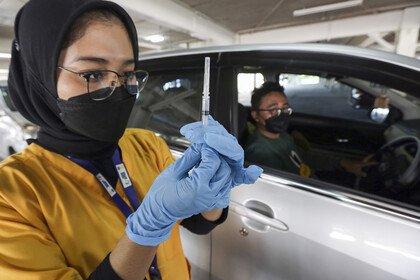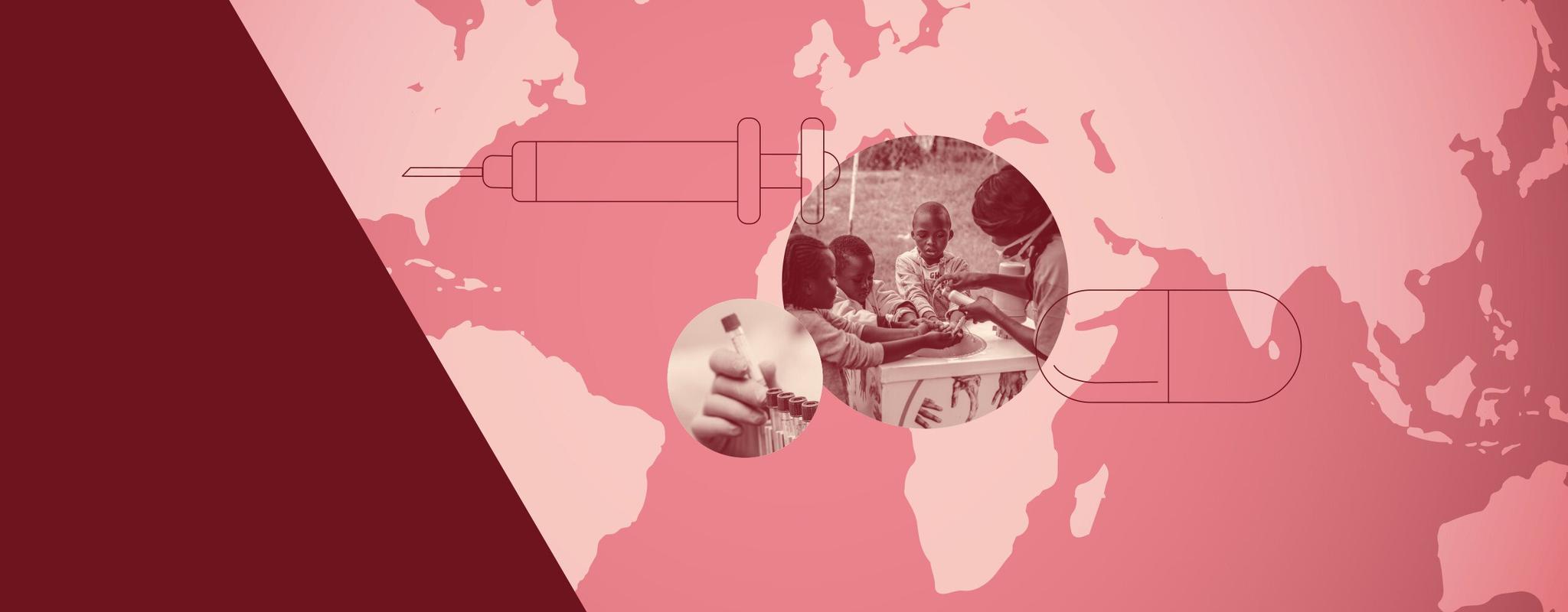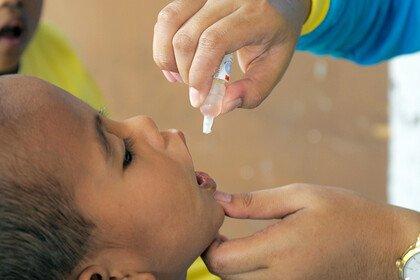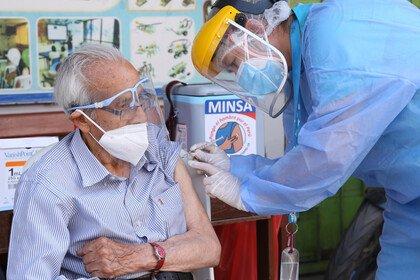
Strengthening regulatory systems in low- and middle-income countries: Improving the sustainability of the vaccine innovation ecosystem in Africa
This report explores the challenges in regulating the development, production, safety monitoring and approval of vaccines for use across Africa.
The absence of functional national regulatory agencies in some countries can expose people to potentially unsafe products of variable quality and effectiveness. A lack of coordination allows substandard and falsified products to enter the system, all of which contribute to poor health outcomes and lower life expectancy.
The Covid-19 pandemic highlights the need for more reliable and timely supply of vaccines and other medical products across Africa, prompting a resurgence of political support for local manufacturing.
The findings of this report support calls for investment in appropriate regulatory oversight in Africa.
What’s inside
- An in-depth analysis of the challenges impacting the vaccine regulatory ecosystem in Africa
- Detail on opportunities for investors and development partners to strengthen the regulatory system and improve its sustainability
Who this is for
- Development partners
- National regulatory agencies
- Health, Treasury, Trade and Finance officials
- Regional Economic Communities (RECs)
- Policymakers
- Industry
- Anyone interested in regulatory system strengthening
Key findings
- Several complementary national, regional and global initiatives have been introduced that have made significant progress in the last decade to strengthen capacity, support regional alignment, and align and simplify regulatory processes and procedures. The next stage of strengthening must focus on increasing efficiencies, reducing duplication and building synergies.
- There are persistent challenges affecting access to a range of medical products that need to be addressed. These issues span the regulatory lifecycle and affect the legal and policy environment, sustainable financing, gaps in the regulatory workforce, institutional capacities and digital resources.
- Supporting the operationalisation of the African Medicines Agency (AMA) is a critical step for achieving regulatory excellence. The vision of the AMA is to foster a collaborative regional approach that builds on, is underpinned by and is complementary to the African Medicines Regulatory Harmonisation (AMRH) initiative.
- Efforts should be directed to strengthening anchor countries, particularly those who will produce vaccines, strengthening key functions across Regional Economic Communities (RECs) and continuing to develop local centres of excellence in specific regulatory activities. This should include supporting regulatory authorities to use each other’s work to support decision-making and enabling sharing of key resources, including laboratory facilities, to support different regulatory functions and effective manufacturing.
Where investment could transform Africa’s regulatory system
The following additional areas require a strategy and sustainable investment to transform Africa’s regulatory system:
- The legal and policy framework, including a review of the outstanding issues affecting suppliers
- Dedicated strengthening of key bodies, such as the secretariats of the AMA, the AMRH, RECs and the continental Technical Committees to support work-sharing and reliance
- Strengthening cross-cutting infrastructure: laboratory infrastructure, digital infrastructure, information management systems and workforce strengthening and retention, through the AMRH continental Technical Committees and Regional Centres of Regulatory Excellence
- Meaningful and transparent performance measurement and management of initiatives
What should investors do next?
- Support the operationalisation of the AMA, including the AMRH which underpins the new agency
- Strengthen anchor countries through collective efforts to achieve Maturity Level 3 and 4 (WHO Listed Authority) status, strengthen authorities with Maturity Level 1 and 2 status, and increase collaborative actions such as centralised joint laboratory services
- Provide combined support for the regulatory infrastructure by making processes digital, retaining local workforce through investment and supporting policy and operational research and strategic thinking to ensure the legal, policy, technical and economic conditions for effective continental, regional and national regulation are optimised
Downloads
- Strengthening regulatory systems in low- and middle-income countries: Improving the sustainability of the vaccine innovation ecosystem in Africa
- Strengthening regulatory systems in low- and middle-income countries: Improving the sustainability of the vaccine innovation ecosystem in Africa (Final Compendium)
- Strengthening regulatory systems in low- and middle-income countries: Improving the sustainability of the vaccine innovation ecosystem in Africa (French version)
- Strengthening regulatory systems in low- and middle-income countries: Improving the sustainability of the vaccine innovation ecosystem in Africa (Project Summary in French)
- Regulatory system strengthening report insights: proposed priorities for funders
- Regulatory system strengthening report insights: proposed priorities for funders (infographic)
Contact us
For more information, or to request a French language version of the report, contact Divya Shah, Research Lead, Site and Systems at D.Shah@wellcome.org


